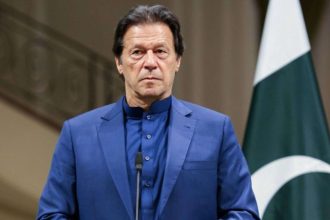As the tenure of Bangladesh’s Prime Minister Sheikh Hasina drew to a close, she faced mounting pressure from public protests demanding her resignation. Despite her initial plans to suppress the demonstrations using force, events took a different turn.
According to reports from Prothom Alo, Prime Minister Hasina had intended to enforce a curfew starting Monday to quell the protests. However, by 9 PM, the protestors had already started to defy the curfew. To manage the situation, Hasina convened a meeting at her residence with the three service chiefs and the Inspector General of Police.
During this critical meeting, Hasina expressed dissatisfaction with how the protestors were handled, particularly questioning why no action was taken against those climbing onto armoured vehicles. The military and police leaders tried to convey that the situation was rapidly escalating beyond their control. The newspaper also noted that Hasina’s son tried to counsel her remotely during the meeting.
With her dwindling options, Hasina was reluctant to transfer power to the military, reminding the service chiefs of her role in their appointments. After several discussions with her family, she conceded to resigning.
Plans for Hasina to address the nation were quickly abandoned when it became clear that protesters were nearing the Prime Minister’s residence, leaving her with little time to evacuate safely. Subsequently, the military presented Hasina with a 45-minute ultimatum to relinquish power. Following her resignation, she departed the residence via a military helicopter just as protestors stormed the building, causing extensive damage.
She initially sought refuge at a BSF base in Agartala, India, and later travelled to Delhi, landing at Hindon Airport.
In the aftermath, the day following the end of Hasina’s government saw the military lifting the curfew, a move announced by the Bangladeshi Army’s Public Relations Department. Life began to normalize as educational institutions across Dhaka and other cities reopened, marking a new chapter for the country.






